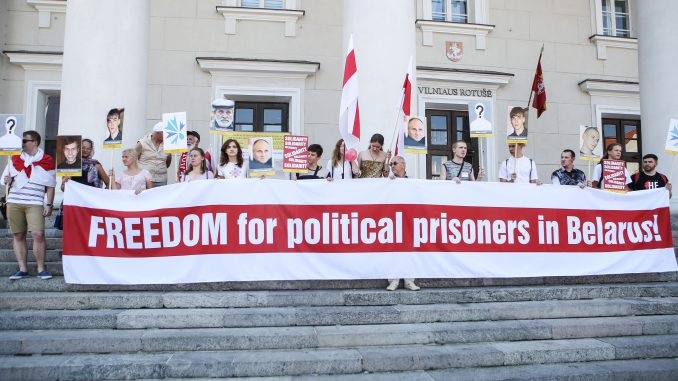
Starting a new life after political imprisonment in Belarus
Belarusian President Alexander Lukashenko has recently pardoned numerous political prisoners, including Dmitry Luksha and Polina Polovinko, who were released on July 3. In an interview, Polovinko discussed their experiences during imprisonment and the circumstances surrounding their release.
Both Luksha and Polovinko participated in protests against the 2020 presidential election results, which led to Lukashenko securing a sixth term in office. Luksha, a former journalist for Belarus state media, was arrested in March 2022 on charges of "discrediting Belarus." Polovinko was initially called as a witness but was later declared a suspect for refusing to testify against her husband.
During their time in detention, the couple was prohibited from direct communication and could only exchange messages through legal representatives or family members. Polovinko recounted that her husband attempted to send her letters through other detainees, but it took four months before she received the first note.
On December 2, 2022, they were sentenced to 2.5 and four years in prison, respectively, along with fines. Polovinko highlighted the challenges faced by political prisoners, including restrictions on access to entertainment and limited communication with family. She expressed concern about the psychological toll of such conditions.
While in prison, Polovinko was approached by authorities about signing a pardon request. She initially hesitated, fearing potential repercussions, but was eventually assured that no conditions would be imposed for her release. Luksha faced a similar situation, receiving a prepared pardon request without prior knowledge of its implications.
Following their release, the couple moved to Poland, where they are rebuilding their lives. Polovinko acknowledged the challenges of adjusting after their time in prison but emphasized their commitment to open communication as they navigate this new chapter together.
The experiences of Luksha and Polovinko highlight the ongoing issues surrounding political repression in Belarus and the complexities faced by those seeking to start anew after imprisonment.







